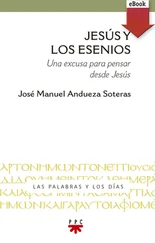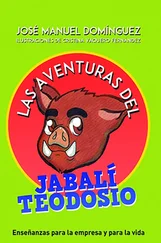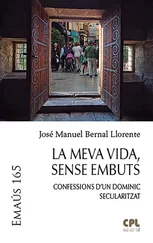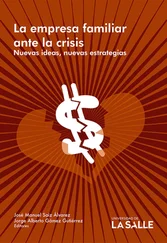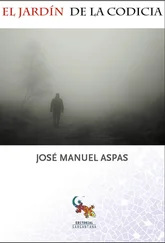But not them: they’re merely scientists and amateur swindlers.
And one afternoon (I already told you about that afternoon, described it to you) they’d heard the knock at the door, the timid scratch of this small Holgerssonwhom they let in without taking their minds off the problem for a second. Hiring this diminutive personage to save the boy or at least momentarily distance him from the insufferably plebeian and lowbrow Spanish television, without interrupting even for a second their tortured deliberations. Until I tugged at the hem of your mother’s dress and forced her, tiny as I was, to bend down, look down at the floor, and pointed out to her with my index finger a passage of the Book, its illuminated plates, the many tableaux that began moving before her astonished eyes. Here, I said to her: a way out and a solution. To all your problems. And I straightened and grew larger the longer they bent down, and I saw them stooping beneath the weight of the Book’s evidence, and myself there, resplendent in the center of the room, until we reached the solution: the king, to become king. They looked at each other; she and her husband swiftly exchanged a look and conceived of the idea of swindling me, harnessing the strength of my generous heart and my candid goodness to their own, shadowy ends.
Where it says, for example, without my being able to take a step or rather drop to the ground, return to earth, my feet a hands-breadth above the carpet, then falling slowly back down onto it, still plunged in my astonishment. Which acknowledges, this passage, and must be interpreted — as I had to explain with patience to the person who had made her take off her necklace that morning, to Batyk — to mean that on the contrary she must never stop wearing the necklace, must come down every morning to breakfast in it. That the necklace, the sheer weight of the necklace, would tilt the floor beneath me so that I would roll easily toward her, attracted by its sparkle; that only thus would they convince me to sell the stones, that I would not cease to orbit near her, spinning before her chest like a bird caught in the slipstream of a larger bird. Prepared to save her (prostrate at her feet), to find — at the risk of my life — the money they needed in order to flee.
But that doesn’t matter.
Or yes, it does matter. Explained with absolute clarity in the sixth book. When old Karamazov says, in the most literal way, requiring no commentary whatsoever: And I have been lying, I’ve been lying all my life long, every day, every hour. Verily, I am a liar, the father of lies!
And then, where it says, where I told myself: that a diamond cutter, a jeweler, must see himself as a ray of light or, even more peculiarly, as riding upon a ray of light. Must imagine himself entering the gem astride that ray of light in order better and more fully to understand the effect of the light on its interior, the walls against which the light will rebound and through which it will depart, refracted, to wound the imagination and deceive the eyes.
How could a woman like that not have known everything or have failed to deceive me: a woman like that, a siren, a bird-woman? Can you tell me, Petya? Can you, dear readers? How?
3
All right then, it doesn’t matter: I loved her. All right then, it doesn’t matter: this Book is the greatest ever written. All right then, it doesn’t matter: we would get out of there, we would figure out how to make my plan work. I love her, I continue to love her, Petya. Even if there are things that cannot be explained. Obscure passages that defy the imagination and put the reader’s credulity to the test. I know that; it doesn’t stop me. Because it’s more than likely that the original text was corrupted by Humblot, that the same envious hand that rejected the original manuscript may have interpolated phrases that do not figure in the first version and whose meaning, Your Majesty, can never be revealed (this to Simeon).
How long have I pondered these words, how often turned them over in my head: God has disposed, and I believe this to be so, that not all are to be rich, for God knows very well why he did not allow the goat’s tail to grow too long.
For at first, in my adolescence, when I was reading the Book merely as a work of fiction and had no awareness or only some vague intuition of the mine of wisdom it is in reality, I tended toward an allegorical reading that was contrary to its literal meaning. In the sense that a longer tail on a goat wouldn’t be the sign of a few powerful chosen ones, but only a caprice of nature from which to draw no moral or human implications. But now, with the years, I’ve come to suspect that the Writer’s intention was more literal, very different from that which might be attributed to a writer addicted to the vice of obscurity such as Theophrastus Bombastus (aka Paracelsus). For yes: a few powerful chosen ones. And myself among those few, and your father and your mother among the few, and the Writer, let me tell you, not among the few, higher than the few, from which it can be deduced that I couldn’t apply to her, to your mother, the same criteria by which we judge an ordinary member of the public, that she, like Your Excellency (this to Simeon), operates outside of the normal boundaries and, in effect, is excluded from my wrath. For she may have had her reasons for having acted thus, and I, in my insignificance, was not the man to judge her.
“My words, Majesty, are not calculated to gain your sympathy. I say that this is so because I feel it to be so. To understand things once more as they were understood prior to 1793 (when Louis was guillotined) or even to 1649 (when Charles was beheaded). Or as if the interval between 1917 and today did not exist. The horror of the two wars erased, a time in which, from the porthole of my ship, I see no blue sky and purple clouds or planets below, only death, — isms, genocidal camps. Is that life? Yes, but not in human form. A pseudoformation, a gulf in time, a shoot or bud that must be eliminated. I’ve repeated this to myself over the course of countless nights, for if there are so few flowers and only one sun, then why pretend to be all of us flowers, all of us suns? And the ether in which they breathe and exhale their fragrance? And the branches, Simeon, that hold up the sun, which shines and revolves amid their green formations?
“Without lingering for a second, Usia, over the fallacious argument that such an idea is outmoded, that this is an anachronistic form of government, from which it could be deduced that more modern or advanced forms, methods for governing that are intrinsically better, or more progressive and advanced forms of government … That a community (European) is better than an empire (Asiatic), a president better than a king, that Francis Bacon’s Innocence X (a commentary) is better than Velázquez’s Inocencio X (the text commented upon). Placed at different points along a scale or hierarchy, and not as I see them: equidistant, equivalent, combinable. All the arguments in favor of a regime of direct or indirect representation also easily applicable to a king. Against Lucius Tarquinus Superbus, the last king of Rome, and in favor of Lucius Tarquinus Superbus …”
Batyk took full advantage of the time it took Lifa to reach us with the drinks. He seemed to materialize in discrete moments or pulsations of time: at the door of the drawing room, one; in the center of the drawing room (on the tiger-striped rug), two; next to the Pool, three; then next to us, to Simeon and myself. Unctuous as an usher, fawning as a vizier.
“You talk like a book!” he interjected, bowing low before Simeon. “You don’t know how right His Excellency is” (this to me) “for there is already the basis for a terrible argument against republics in the single fatal fact that any monarchy can in twenty-four hours be transformed into a republic, while, on the other hand, no republic can, in twenty-four hours, improvise itself back into a monarchy. To return to nature, to fall into barbarity, to go back to the primitive state, is always very easy, because one need only let oneself go: nature is always there, in the background, lying in wait for us. What isn’t always there is civilization: that is, work, conquest, discipline, time, and patience.”
Читать дальше





